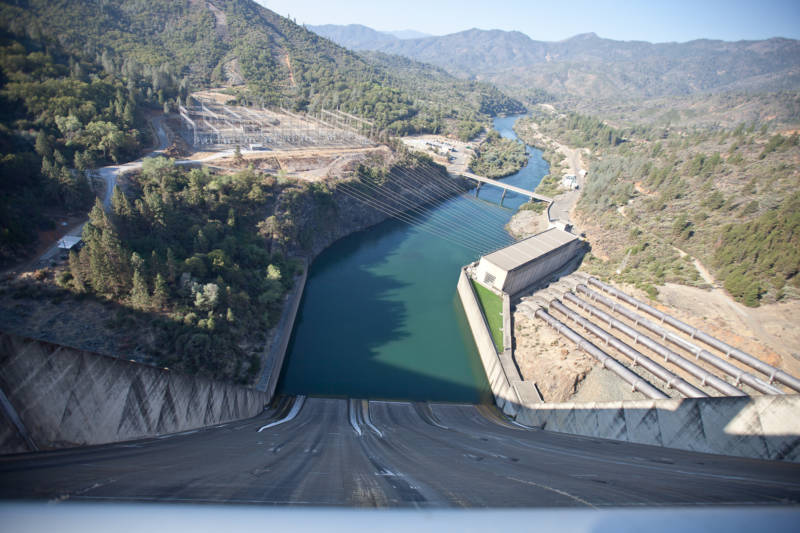The Westlands Water District announced this week that it’s spiking a study on the potential effects of raising the height of Shasta Dam. That’s because the district couldn’t meet the federal Bureau of Reclamation’s deadline for the study.
The announcement throws into question the future of elevating the dam and follows the Fresno-based irrigation district’s losses in court fights with California and environmental groups over the legality of the project.
The Redding Record Searchlight reports that the feds were looking for partners to help pay to raise the dam 18.5 feet higher at a cost of $1.4 billion. Westlands was the only agency that had indicated interest in working with the bureau.
Below is a good summary of the story from Calmatters’ Dan Morain …
A plan to enlarge Lake Shasta to provide more water for Central Valley farms was dealt a significant setback Monday when one of the main advocates halted plans to study the project’s environmental impact.It’s complicated:
- The U.S. Bureau of Reclamation under the Trump administration dusted off plans to raise the height of Shasta Dam by 18.5 feet, a $1.4 billion project.
- That would increase Shasta reservoir’s capacity and make more water available, as detailed by The New York Times.
- Uncle Sam expects a matching commitment from California.
- The state itself opposes the project, but not the Westlands Water District, which provides water to farms in Fresno and Kings counties.
Enlarging Lake Shasta could damage the McCloud River, which flows into Shasta. State law protects the McLoud as a wild and scenic river.
Westlands decided to embark on an environmental impact report to test whether the project would, in fact, damage the McLoud.
Attorney General Xavier Becerra sued to block Westlands from undertaking that report. Westlands lost in the courts.
On Monday, Westlands General Manager Tom Birmingham told me Westlands had no choice but to drop plans to complete the environmental impact report. Westlands could conduct a different type of analysis, but that will delay the project.
- Birmingham: “It certainly has created a lot of uncertainty. How it will affect the Bureau of Reclamation, I don’t know.”
The federal official overseeing the project did not respond Calmatter’s call.
Here is previous KQED coverage going back to 2013 on the proposed project,

